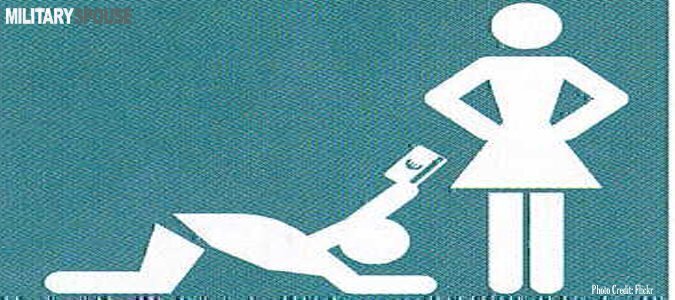Could your spouse look at you and accuse you of infidelity? Not adultery, but infidelity. Or could you point the finger at your spouse in uniform and accuse him or her of the same crime? We’re not talking about an extramarital affair, instead we’re honing in on financial infidelity. Any marriage counselor, chaplain, or therapist would tell you one of the most important elements of a relationship is trust, that includes cheating on your partner financially. Earlier this year, a report released by CreditCards.com found that more than 7-million Americans have a hidden bank account or credit card account. Perhaps I’ve buried the lede here…most of the individuals lying about spending were the men in a relationship.
Feeling a little less guilty about the time you snuck that new purse into your closet with out your husband seeing? Men…feeling like the interrogation lamp is spotted on you right now? The survey took a look at married couples and people living with partners. Nearly 6 percent of the people in the relationships were leading financial double lives and didn’t have control over their financial lives – this includes everything from lying about debt to concealing bank accounts with loads of money stashed away unbeknownst to their significant others.
Not only can lying about your spending, debt, and savings hurt you on a monetary level, but it can crush the amount of trust you have for your other half. Imagine spending weeks hunting for the perfect house, finding it, and applying for a mortgage only to find out your spouse has a secret credit card that he or she missed a payment on and now you both have an awful credit rating. After releasing the report, CreditCard.com’s senior industry spoke out. “If you and your significant other aren’t honest about your spending, you never really know how much money you have and that can lead to big problems,” Matt Shulz said. Hiding secrets can make it extremely difficult to budget together and plan for your future as a couple or a family. Speaking of budgeting, the survey also took a look at spending habits, of those polled 20% admitted being comfortable spending $500 or more without telling their partner. That’s far from chump change for many people within the country, especially within the military community. Financial infidelity is a serious breach of trust; while separate bank accounts may work well for some couples, the lines of communication should still be open and conversations about money shouldn’t be off the table simply because you have different accounts.
How to spot financial infidelity
Michelle Lerner is a financial writer and has been featured in well-known publications, such as the Washington Post. In an article for Daily Finance, she laid out the warning signs of financial infidelity and said it should be pretty easy to spot the financial cheating if you share a checking account. If you start to notice an unusual number of cash withdrawals on your statement or check out your credit card statements line by line and notice inconsistencies, you should address the issue with your spouse.
Lerner also said it is a red flag when one partner doesn’t want to discuss finances or can’t account for larger purchases and disappearing cash. If your partner shuts down all together, refusing to have any conversation about money and you have to go into detective mode, then the trust issues are bigger than you may have expected and it may be time to call in an outside party, such as a counselor or financial advisor to help the both of you sort through the monetary mess. Therapy might be your saving grace!








